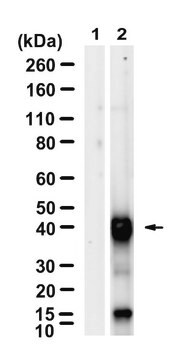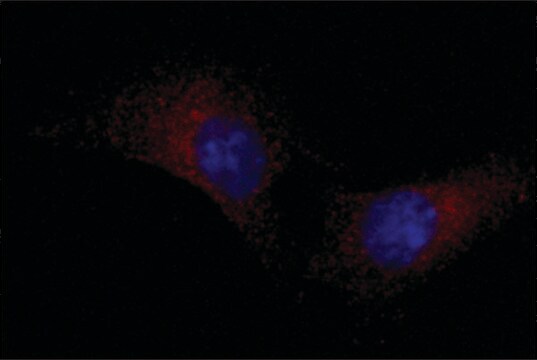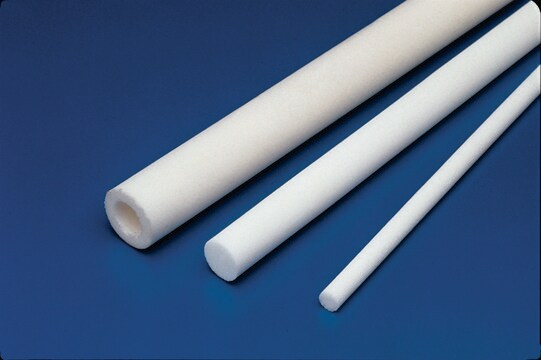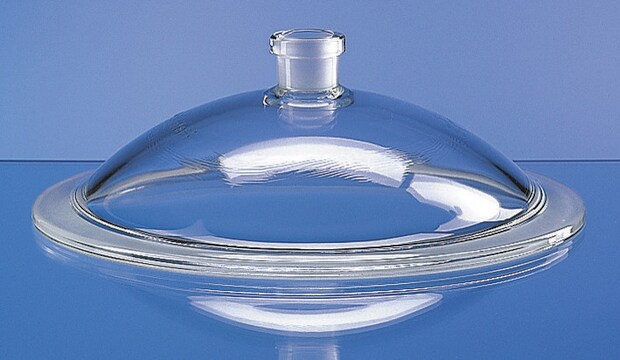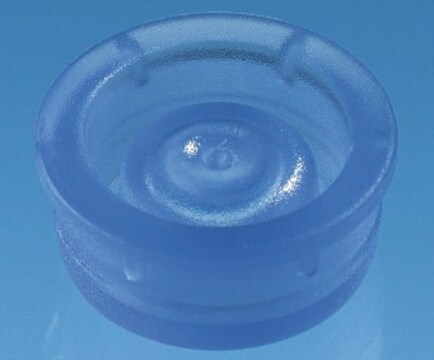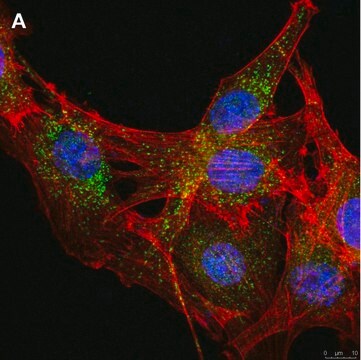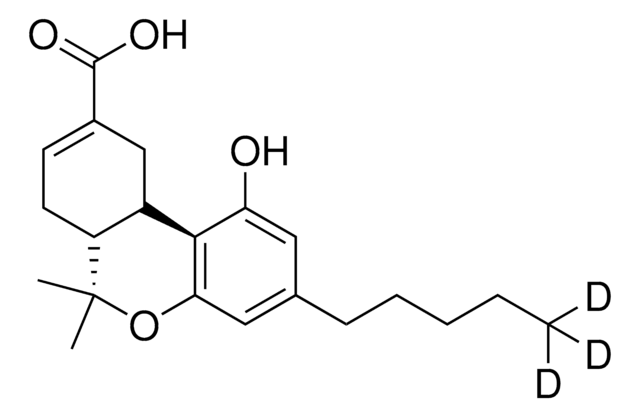ZRB2053
Anti-SLC12A2 Antibody, clone 1J6 ZooMAb® Rabbit Monoclonal

recombinant, expressed in HEK 293 cells
Sinónimos:
Solute carrier family 12 member 2 (UniProt: P55011; also known as Basolateral Na-K-Cl symporter, Bumetanide-sensitive sodium-(potassium)-chloride cotransporter 2
About This Item
Productos recomendados
biological source
rabbit
Quality Level
recombinant
expressed in HEK 293 cells
conjugate
unconjugated
antibody form
purified antibody
antibody product type
primary antibodies
clone
1J6, recombinant monoclonal
description
1J6 Clone
product line
ZooMAb® learn more
form
lyophilized
mol wt
calculated mol wt 131.45 kDa
observed mol wt ~130 kDa
purified by
using Protein A
species reactivity
human, mouse
species reactivity (predicted by homology)
rat, horse, porcine, monkey, feline, bovine, canine
packaging
antibody small pack of 25 μL
greener alternative product characteristics
Waste Prevention
Designing Safer Chemicals
Design for Energy Efficiency
Learn more about the Principles of Green Chemistry.
enhanced validation
recombinant expression
Learn more about Antibody Enhanced Validation
sustainability
Greener Alternative Product
technique(s)
immunocytochemistry: suitable
immunohistochemistry: suitable
western blot: suitable
isotype
IgG
epitope sequence
C-terminal cytoplasmic domain
Protein ID accession no.
UniProt accession no.
greener alternative category
, Aligned
shipped in
ambient
storage temp.
2-8°C
target post-translational modification
unmodified
Gene Information
human ... SLC12A2(6558)
General description
Specificity
Immunogen
Application
Evaluated by Western Blotting in HeLa cell lysate.
Western Blotting Analysis: A 1:1,000 dilution of this antibody detected SLC12A2 in HeLa cell lysate.
Tested Applications
Western Blotting Analysis: A 1:10,000 dilution from a representative lot detected SLC12A2 in Human and Mouse brain tissue lysates.
Immunohistochemistry (Paraffin) Analysis: A 1:100 dilution from a representative lot detected SLC12A2 in human pancreas tissue sections.
Immunocytochemistry Analysis: A 1:100 dilution from a representative lot detected SLC12A2 in HeLa cells.
Note: Actual optimal working dilutions must be determined by end user as specimens, and experimental conditions may vary with the end user.
Target description
Physical form
Reconstitution
Storage and Stability
Legal Information
Disclaimer
¿No encuentra el producto adecuado?
Pruebe nuestro Herramienta de selección de productos.
Storage Class
11 - Combustible Solids
wgk_germany
WGK 1
flash_point_f
Not applicable
flash_point_c
Not applicable
Elija entre una de las versiones más recientes:
Certificados de análisis (COA)
¿No ve la versión correcta?
Si necesita una versión concreta, puede buscar un certificado específico por el número de lote.
¿Ya tiene este producto?
Encuentre la documentación para los productos que ha comprado recientemente en la Biblioteca de documentos.
Nuestro equipo de científicos tiene experiencia en todas las áreas de investigación: Ciencias de la vida, Ciencia de los materiales, Síntesis química, Cromatografía, Analítica y muchas otras.
Póngase en contacto con el Servicio técnico